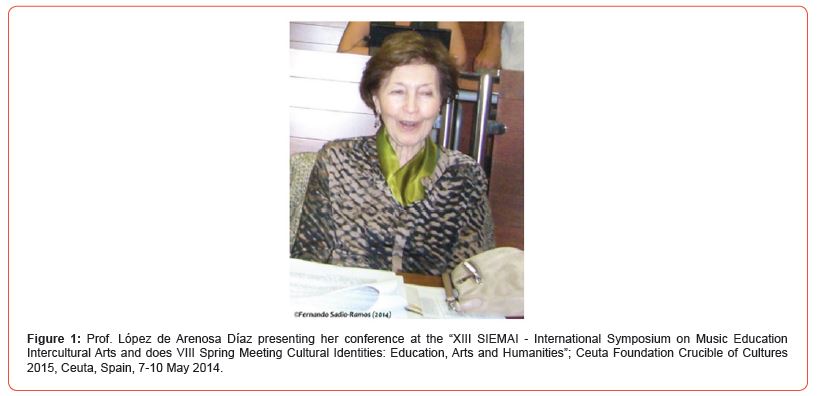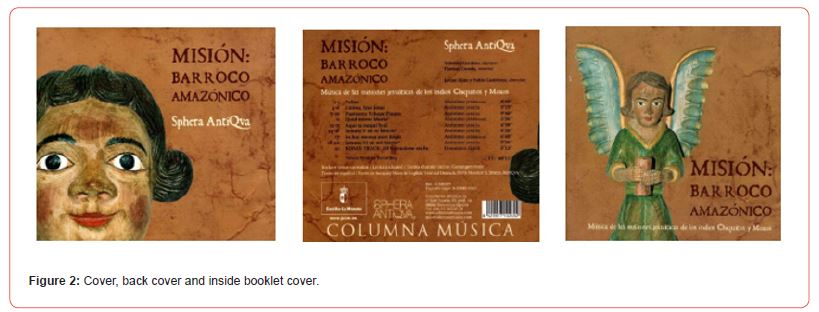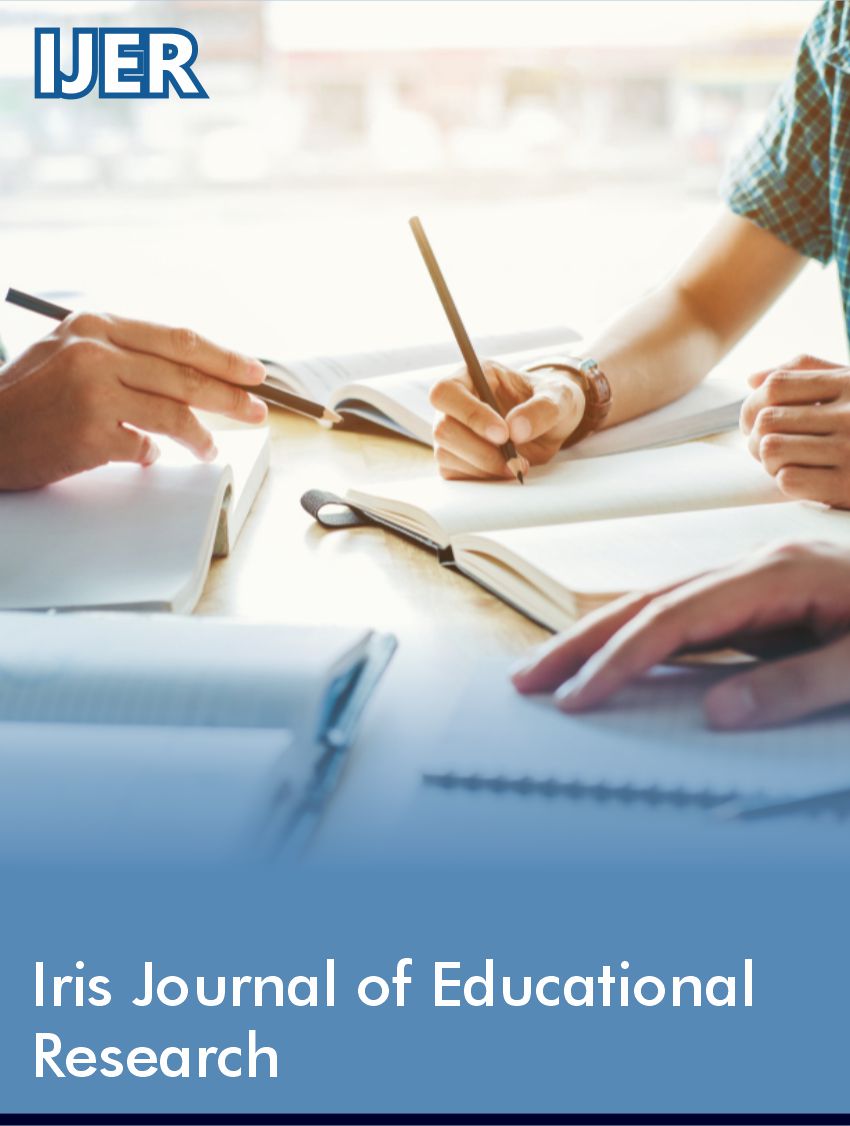 Mini Review
Mini Review
In Memoriam: Music and Pedagogy – Encarnación López de Arenosa Díaz (1935-2021)
Fernando José Sadio Ramos*
School of Education of the Polytechnic Institute of Coimbra, Portugal
Fernando José Sadio-Ramos, School of Education of the Polytechnic Institute of Coimbra, Portugal.
Received Date: September 23, 2023; Published Date: October 03, 2023
Abstract
This is a brief and simple tribute to Prof. Encarnación López de Arenosa Díaz, eminent professor at the “Real Conservatorio Superior de Música de Madrid” (Spain) and its first female head-director, who left us in November 2021. We present (1) a set of references to some of reflexive works she shared with us in our academic projects, (2) the excellent biography produced by Prof. Desirée García-Gil (Complutense University of Madrid, Spain) and (3) a brief musical note we wrote together about an album with music from the Jesuit missions of the Chiquitos and Moxos Indians.
Keywords:Biography; Education; Music Didactics; Encarnación López de Arenosa Díaz; Missión: Barroco Amazónico; Sphera Antiqua
Introduction
Invited to collaborate with a brief opinion-review in this issue of the “Iris Journal of Educational Research (IJER)”, we pay in our text a simple tribute to Professor Encarnación López de Arenosa Díaz (1935-2021), Full Professor of the “Real Conservatorio Superior de Música de Madrid” (Spain) and its first female headdirector, who left us after a life entirely dedicated to teaching music and producing teaching materials.

We had the honor of having on her a dedicated and constant collaborator and support of the HUM 742-DEDiCA (Development of Didactics in the Andalusian Community) Research Group (University of Granada / Junta de Andalucía), and of the academic movements “SIEMAI – International Symposium Education Music Intercultural Arts™” and “Spring Meeting™” (Figure 1).
Her impressive pedagogical legacy is particularly meaningful to her countless disciples, both those who benefited from her brilliant teaching in person and relationally, but also those who were enriched by reading and using her teaching materials. We must also mention those who enjoyed the privilege of her friendship, conviviality, and conversation, as well as her academic and didactic collaboration, among whom we are honored to include ourselves.
The modest tribute we are paying to her presents (1) a set of references to her works, (2) a biography produced by Prof. Desirée García-Gil (Complutense University of Madrid, Spain) and (3) a brief musical note we wrote together about an album with music from the Jesuit missions of the Chiquitos and Moxos Indians, We recover this work since it assumes, in our point of view, a significant relevance nowadays, when our human civilization endures particularly complex and critical times under the sign of intolerance and barbarity.
In our academic collaboration, and personal relationship, for over 15 years, we have had the opportunity to benefit from her serenity, her profound meditations on didactic and musical research, as well as on the ultimate sense of education. The list of publications referred to infra constitutes an excellent repository of her relentless labor. We would highlight the following works, which attest to the deep knowledge and ingenious reflexivity to which Prof. López de Arenosa Díaz subjected her profession, seeking the full meaning of education:
1. Since Duda. Reflections on Musical Education in a Plural World. In Fernando Sadio Ramos (Coord.) (2009). Dialogue and Intercultural Communication. Education with the Arts, pp. 13- 33. Coimbra: FREd™.
2. Let’s think: Are competencies a bridge to the intercultural? About Higher Musical Education. In Fernando Sadio Ramos (Coord.) (2010). Building Bridges towards Interculturality, pp. 51-97. Granada: K & L Editions.
3. Let us think: Are competencies a bridge to intercultural? In Fernando Sadio Ramos (Coord.) (2010). Laying Bridges for Interculturality, pp. 51-97. Coimbra: Fernando Ramos (Editor).
4. Time to think. In DEDiCA. Journal of Education and Humanities, 2, 2012, 17-46.
5. The art and its reception. In DEDiCA. Journal of Education and Humanities, 6, 2014, 37-55.
6. Permanent education focused on old age/ aging. Experiences and reflections. In DEDiCA. Journal of Education and Humanities, 9, 2016, 265-282.
The last paper was originally presented at an international congress, “XIV SIEMAI - International Symposium Education Music Intercultural Arts and the IX Spring Meeting Education, Art and Humanities at a crossroads of Cultures”, which took place at the University of Zaragoza, Campus of Teruel, Spain, from April 13 to 16, 2016.
Its content assumes the status of a truly personal reflective legacy, based on her experiences lived in limiting situations, with a strong intersubjective character, showing a life that takes stock of itself and shares with others a serene, ironic, and wise vision of the meaning of life. We had the grace to attend and participate in the live conference, which constituted an elevated moment of communion of Prof. López de Arenosa Díaz with her grateful members of the audience, who had the privilege and grace of listening to the author’s words and to translate the dialogue generated into their own experience and circumstance.
Also, as part of the work in which we collaborated, the production of the biography of our honoree was the subject of a significant piece of work by Prof. Desirée García-Gil (Complutense University of Madrid, Spain). Using the biographical-narrative method, García-Gil interviewed Prof. López de Arenosa Díaz and prepared her biography to capture her educational, labor, and social career, considering her exceptional status as Full Professor of the “Real Conservatorio Superior de Música de Madrid” (Spain) and its first female head-director. The article has the following reference:
1. Garcia Gil, Desiree (2017). Woman, education, and conservatory: an account of life. DEDiCA. Journal Of Education and The Humanities, No. 12, September 2017, 175-1.
2. In this “Iris Journal of Educational Research (IJER)” article, we recover a collaboration of ours, on no 2 issue of DEDiCA, 2012, 365-367.
The richness of the musical work that we have collected at the time justifies the present return in this issue of the “Iris Journal of Educational Research (IJER)”, thus broadening its original influence and making it possible to disseminate a work that is necessary for the complexity of our civilizational times, deeply marked by intolerance and barbarity. In a few months’ time, we will be able to share the analysis of experts at the international symposium “ Complex times: Education, Culture and Art. IX Symposium DEDiCA EDUCAÇÃO E HUMANIDADES™, XVIII SIEMAI - International Symposium Education Music Intercultural Arts™”, which will take place at the Escola Superior de Educação do Instituto Politécnico de Coimbra, from January 24 to 26, 2024., in wat we believe will constitute a remarkable reflective meeting in which the sense of Education, Art and Humanities will be addressed in an intersubjective and productive manner.
Our 2012 work concerned the presentation of the following record: Sphera Antiqua (2010). Mission: Amazonian Baroque. Music from the Jesuit missions of the Chiquitos and Moxos Indians. Music Column: Madrid (Figure 2).

Released in 2010, this album brings together a wide repertoire of baroque music originating from the Jesuit missions of these Amazonian communities kept alive by the indigenous people, after the expulsion of the Jesuits in 1767, feeling them as their own after years of relationship and mutual contributions. It is remarkable that they are still being interpreted today.
The musical pieces are anonymous, contained in the musical archives of Moxos and Chiquitos, both in Bolivia, apart from a piece by the illustrious baroque musician Domenico Zipolli, one of the Jesuit masters of these reductions.
As pointed out by the distinguished musicologist Father Piotr Nawrot, to whom the compilation of this musical treasure owes so much, the vocal works are in their original languages, since according to the Councils of Lima and Mexico, the evangelization of the Indians had to be done in their own languages and two or three missionaries who knew these languages lived with a large number of Indians –between 3 and 5 thousand– in the reductions.
The repertoire is very extensive and practically reproduces the usual forms of the European baroque, while integrating the specific features of the indigenous people who not only compose works in the assimilated styles of their European masters, but also build instruments typical of Western culture, as well as other native instruments used, by the way in this unique recording: huge traditional palm leaves pan flutes (“bajones”) and smaller pan pipes (“jerures”), Moxeño drums, toucan beak rattles, snake rattles, hooves and many more.
Sonatas, Pastoretas, Folías, vocal pieces constitute the repertoire contained in the disc.
The group Sphera Antiqua is made up of: Pablo Gutiérrez and Javier Illán, in charge of baroque violins; Keiko Gomi, on baroque cello; Daniel Lorenzo, viola; Miguel Ricón, theorbo and baroque guitar; Silvia Jiménez, double bass; Jorge López-Escribano, harpsichord and organ; Elíes Hernándis and Daniel Bernaza, on palm leaves “bajones” and “jerures”; Daniel Garay, indigenous and European percussions (namely, moxeno drum, toucan beak rattles, “caxixi”, snake rattle, hooves, tambourine, darbouka, crotales, shakers and bamboo and seed rattles).
In this album, they are accompanied by Soledad Cardoso (soprano), Florian Cousin (on traverso), with Javier Illán and Pablo Gutiérrez conducting.
It’s always a comforting pleasure to be able to reconnect with a superior spirit who, even if he leaves us physically, is still with us in our memories and culture.
See you one day, Encarna!
Acknowledgements
deeply thank Dr. Ortiz-Molina, Director of the scientific journal DEDiCA. REVISTA DE EDUCAÇÃO E HUMANIDADES (https://revistaseug.ugr.es/index.php/dedica), for her generous authorization to reuse the text she published in 2012, in issue no 2.
We also thank Jenny Ruth, Managing Editor of Iris Journal of Educational Research (IJER), for her kind invitation to send our contribution.
Conflict of Interest
There is no conflict of interest of any kind.
References
-
Fernando José Sadio Ramos*. In Memoriam: Music and Pedagogy – Encarnación López de Arenosa Díaz (1935-2021). Iris J of Edu & Res. 1(3): 2023. IJER.MS.ID.000515.
-
Jixiang, Yan Xiang, Yan Ritual, Shi Ritual, Xiang Ritual, Tong-Gong, Lu-Ming, Ba Bo Shang Yu, Zong Miao, Ji Si, Si Xian Guan
-

This work is licensed under a Creative Commons Attribution-NonCommercial 4.0 International License.






